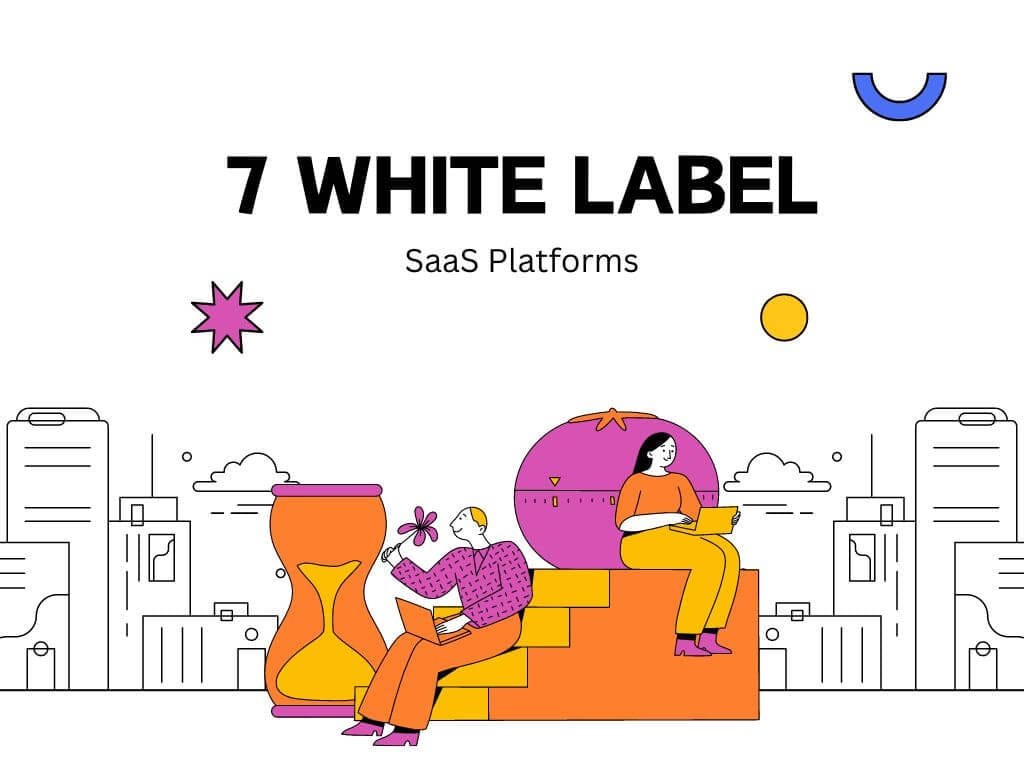SaaS Marketing Automation: Boost Efficiency and Drive Growth with Smart Tools

Introduction to SaaS Marketing Automation
SaaS marketing automation refers to software solutions that streamline and automate marketing tasks and workflows using a cloud-based service model. These tools empower businesses to enhance their marketing efficiency by automating repetitive tasks such as email campaigns, social media management, lead nurturing, and more. By leveraging advanced algorithms and data analytics, SaaS marketing automation platforms provide insights that drive more personalized and effective marketing strategies.
Marketing automation has seen considerable growth in recent years. According to a report by MarketsandMarkets, the market size for marketing automation software was valued at $3.3 billion in 2019 and is projected to reach $6.4 billion by 2024, growing at a compound annual growth rate (CAGR) of 13.9%. These statistics highlight the increasing adoption of marketing automation as businesses seek to optimize their marketing processes and improve ROI.
One reason for the rapid adoption of SaaS marketing automation is its ability to integrate seamlessly with existing business systems. This integration helps in creating a unified marketing and sales process that improves lead generation, customer engagement, and conversion rates. Additionally, these platforms offer robust analytics and reporting features that allow marketers to measure the effectiveness of their campaigns and make data-driven decisions.
In today’s competitive market, businesses that utilize SaaS marketing automation tools can stay ahead by responding swiftly to customer behaviors and market changes. The automation of mundane tasks frees up marketers to focus on creative and strategic aspects of their campaigns, which can significantly enhance overall marketing performance.
This blog post will delve deeper into some of the top SaaS marketing automation software available today. We’ll explore their pros, cons, and why they stand out in the industry. The solutions covered include HubSpot, Marketo, ActiveCampaign, and others, offering a comprehensive look at what makes these platforms indispensable for modern marketing strategies.
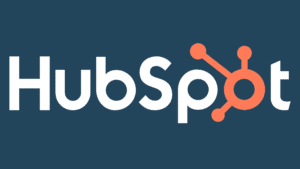
Hubspot
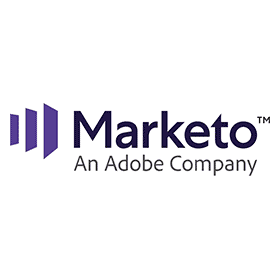
Marketo
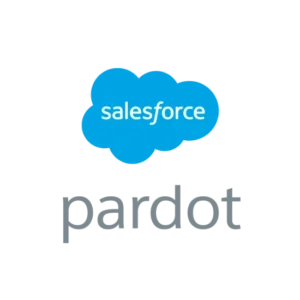
Pardot
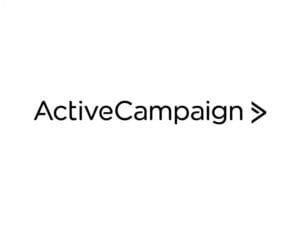
ActiveCampaign
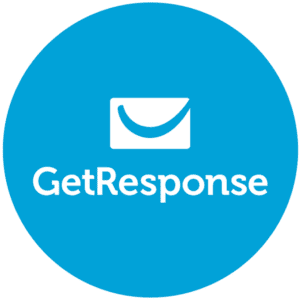
GetResponse
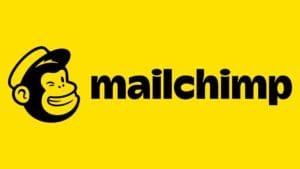
Mailchimp
HubSpot: The Leading Name in SaaS Marketing Automation
When it comes to SaaS marketing automation, HubSpot is a name that businesses of all sizes trust. Known for its comprehensive suite of tools, HubSpot provides an all-in-one platform that covers email marketing, lead management, CRM integration, and analytics. What makes HubSpot particularly attractive is its ability to simplify complex marketing functions, making it an ideal choice even for users without a technical background.
Why We Recommend HubSpot
HubSpot’s standout feature is its user-friendliness. The platform is designed with the user in mind, ensuring that even beginners can navigate through its tools effortlessly. From managing email campaigns to tracking leads, HubSpot consolidates various marketing functions under one roof, streamlining workflows and saving time. The result? Less time spent juggling multiple tools and more time focusing on building effective marketing strategies.
HubSpot’s email marketing tools are particularly powerful, allowing for personalized, automated campaigns that ensure the right message reaches the right audience at the right time. Additionally, HubSpot’s CRM integration provides seamless communication between marketing and sales teams, helping businesses align their efforts and close more deals.
Pros:
- User-friendly interface
- Comprehensive all-in-one platform
- Robust CRM integration
- Detailed analytics for data-driven decision-making
Cons:
- Pricing may be steep for smaller businesses
- Comprehensive features can present a learning curve for beginners
Marketo: Ideal for Advanced Marketing Needs
Marketo stands as a powerful player in SaaS marketing automation, particularly for businesses with advanced marketing needs. With a focus on account-based marketing (ABM), Marketo excels at helping B2B companies engage high-value accounts with personalized campaigns. This makes Marketo a top choice for businesses looking to build long-term relationships with key clients.
Why We Like Marketo
One of Marketo’s most compelling features is its personalization engine, which leverages demographic and behavioral data to deliver highly customized content. This capability enhances customer experiences and significantly boosts engagement and conversion rates.
Real-time analytics and reporting tools allow marketers to track campaign performance and measure key performance indicators (KPIs), providing actionable insights to optimize strategies. Marketo also stands out for its scalability, making it a good fit for businesses of any size, from startups to large enterprises.
Pros:
- Advanced account-based marketing (ABM) capabilities
- High-level personalization for campaigns
- Real-time analytics and reporting
- Scalable for businesses of all sizes
Cons:
- Steep learning curve due to its comprehensive features
- Pricing can be a barrier for smaller businesses
Pardot: The Go-To Solution for B2B Marketing
Pardot, a Salesforce product, shines as a B2B marketing automation platform. Known for its lead scoring capabilities, Pardot helps businesses prioritize their leads, ensuring sales teams focus on the most promising prospects. This feature alone makes it a powerful tool for optimizing lead management.
Why We Recommend Pardot
Pardot’s lead scoring system is top-notch, giving businesses the ability to track and nurture leads based on their interactions with your marketing content. It’s particularly useful for businesses looking to shorten the sales cycle and improve conversion rates.
Another standout feature is Pardot’s email marketing suite. With advanced tools for automation, A/B testing, and performance analytics, businesses can create and refine email campaigns that deliver results. The platform’s Salesforce integration also streamlines workflows, uniting sales and marketing data for better alignment and productivity.
Pros:
- Advanced lead scoring capabilities
- Salesforce integration enhances productivity
- Robust email marketing tools
- Excellent customer support
Cons:
- Higher pricing may deter smaller businesses
- Steep learning curve for beginners
ActiveCampaign: Best for SMBs
ActiveCampaign has made a name for itself by offering a robust suite of marketing automation and CRM tools tailored for small to medium-sized businesses (SMBs). It’s a versatile platform that delivers powerful automation capabilities at an affordable price point.
Why We Like ActiveCampaign
One of ActiveCampaign’s most notable features is its email automation. The platform allows businesses to create highly targeted campaigns based on customer behavior and interactions, helping boost engagement and conversions. The built-in CRM system also makes it easy to track leads, manage deals, and maintain customer relationships.
ActiveCampaign’s affordability is another key selling point. Businesses operating on tight budgets can access a wide array of features without compromising on essential marketing tools. The platform’s customer service is also frequently praised for being responsive and helpful.
Pros:
- Affordable pricing, making it ideal for SMBs
- Advanced email and sales automation
- Built-in CRM for streamlined customer management
- Excellent customer support
Cons:
- May lack advanced features needed by larger enterprises
- Customization options may be limited for complex marketing needs
GetResponse: Best for Webinar Integration
GetResponse stands out in the marketing automation space with its unique integration of webinar hosting, a feature rarely found in other platforms. This functionality allows businesses to not only engage audiences through email but also transition seamlessly to live, interactive webinars.
Why We Recommend GetResponse
In addition to webinar hosting, GetResponse is known for its extensive library of email templates, which can be easily customized to match any brand’s style. The platform also prides itself on its simple pricing structure, which eliminates the confusion of tiered pricing and hidden costs.
For businesses looking to engage their audience in more interactive ways, GetResponse’s webinar tools are a game-changer. However, while the platform excels in ease of use and functionality, its analytics tools might fall short for businesses needing in-depth, granular data analysis.
Pros:
- Unique webinar integration
- Extensive email template library
- Simple, transparent pricing
- Easy to use for beginners
Cons:
- Limited advanced analytics tools
- May not meet the needs of data-driven enterprises
Mailchimp: Best for Startups and Small Businesses
Mailchimp is a well-known name in SaaS marketing automation, especially for startups and smaller businesses looking for an affordable, easy-to-use platform. Mailchimp offers a generous free plan, making it accessible for businesses just starting out.
Why We Like Mailchimp
Mailchimp’s user-friendly interface makes it easy to set up and manage marketing campaigns without the need for advanced marketing expertise. Its affordability, particularly the free plan, provides a great entry point for small businesses looking to leverage marketing automation on a budget.
In addition to email marketing, Mailchimp offers extensive third-party integrations, allowing businesses to seamlessly connect with CRMs, eCommerce platforms, and social media tools. However, for businesses looking for advanced data analysis and highly customizable workflows, Mailchimp’s features may be somewhat limited.
Pros:
- User-friendly interface
- Affordable pricing with a generous free plan
- Extensive third-party integrations
Cons:
- Limited customization for advanced users
- Template design options can feel restrictive
Choosing the Right SaaS Marketing Automation Tool
Selecting the best SaaS marketing automation software depends on your specific business needs, budget, and marketing objectives. Each platform we’ve explored—HubSpot, Marketo, Pardot, ActiveCampaign, GetResponse, and Mailchimp—offers unique strengths and features tailored to different types of businesses.
If you’re looking for an all-in-one platform with user-friendly tools, HubSpot is a great choice. For businesses focused on B2B marketing and lead management, Pardot or Marketo might be the better fit. If affordability and ease of use are top priorities, ActiveCampaign or Mailchimp could be your best option. For those seeking webinar integration, GetResponse stands out as a unique and versatile tool.
Ultimately, the key to making the right choice is to align your business goals with the platform’s capabilities. Each of these platforms has the potential to streamline your marketing efforts, improve lead generation, and drive business growth. For a more detailed breakdown and to explore trial versions, visit the official pages linked above.
HUBSPOT FOR NONPROFITSGuide your nonprofit to success with HubSpot for nonprofits! Discover discounts, success stories, and tips for effective use. Review Information Pop-ups About Reviews Research Methodology Affiliate Disclosure × About Our Reviews Our reviews are based on comprehensive research and analysis conducted by our expert team. We rigorously test…
Top White Label SaaS Platforms for Agencies and Businesses in 2024 White label SaaS platforms allow businesses to rebrand and sell powerful software as their own, offering scalability, reduced costs, and faster deployment. In this guide, we review the 7 best white label SaaS platforms to help you choose the…
The Best Antivirus Software Antivirus software serves as a critical line of defense against a multitude of cyber threats that have become increasingly sophisticated in 2024. It is specifically designed to detect, prevent, and eliminate malicious software such as viruses, worms, Trojan horses, ransomware, and spyware. With the advent of…


